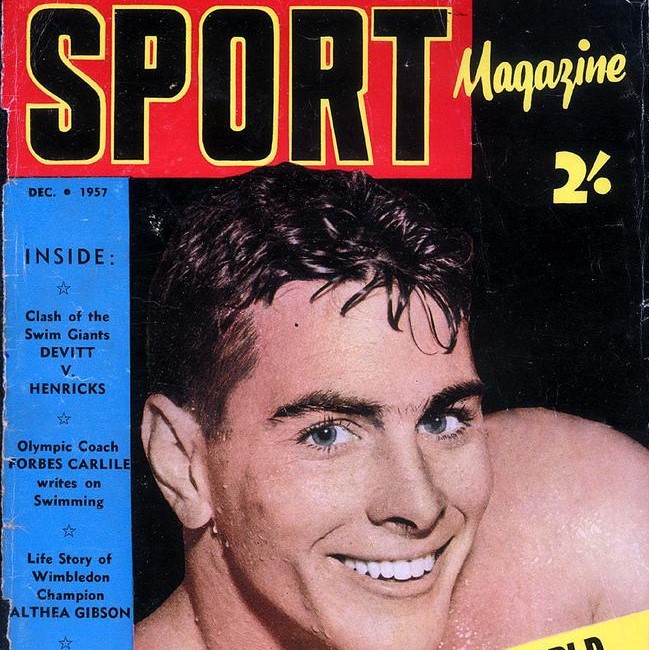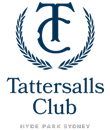We would like to acknowledge the passing of John Devitt AM, age 86, Member of Tattersalls Club.
John Devitt’s illustrious aquatic career spanned over a remarkable 13 years. During this extensive tenure, he achieved remarkable feats including two gold, one silver, and a bronze medal in Olympic Games. Additionally, he secured three gold medals at the 1958 Cardiff British Empire and Commonwealth Games, asserting his dominance on the global stage.
Mr Devitt’s legacy was etched not just in medals but in records shattered and championships conquered. Fourteen world records, four of which were achieved individually, stand as a testament to his exceptional skills. Moreover, he emerged triumphant in 13 Australian championships, with three of those victories in individual events.
Throughout the 1955 Australian championships, Mr Devitt’s prowess was evident as he secured second-place finishes in the 110yds freestyle, trailing behind Henricks, and in the 220yds freestyle, where Murray Rose took the lead. The subsequent 1956 titles saw him securing a third-place finish in the 110yds and a fifth-place position in the 220yds, while Henricks and Chapman dominated. His involvement in the Olympic training squad in Townsville showcased his dedication, even though the top spot remained elusive.
Notably, Mr Devitt’s dedication and charismatic leadership earned him immense respect among fellow swimmers, a quality that resonated with the discerning selectors. The announcement of the Olympic team after trials, held at Melbourne’s Olympic Park, brought unexpected joy as Devitt discovered not only his selection but also his appointment as captain—a true honour.
Four years later, at the Rome Olympics, Mr Devitt etched his name in history once again, earning Australia’s first gold medal in the most contentious event of the Games. He strategically navigated his heat and semi-final in the 100m freestyle, earning him lane three in the final. With the American Lance Larson beside him in the second lap, Mr Devitt executed a well-defined plan, coming out of his turn closely behind the Brazilian Don Santos. A surge in the final 10 meters saw Mr Devitt taking the lead, only to be met with Larson’s formidable finish. The outcome was marred by conflicting judgments, with two first-place judges favouring Devitt, while two second-place judges positioned him as the runner-up. The resulting deliberations and technology-assisted measurements ultimately declared Devitt the winner with an official time of 55.2 seconds, solidifying an Olympic record.
The aftermath of this event was marked by controversy, protests, and heated debates. However, the enduring impact lay in the impetus it provided for the introduction of electronic timing—a pivotal step toward fairer competitions. Amidst the commotion, Mr Devitt’s sportsmanship shone brightly, leaving an indelible mark on the sporting world. His dignified approach conveyed that sport was, at its core, a pursuit transcending mere competition, garnering him a stature far surpassing any medal’s significance.
Further contributing to his legacy, Mr Devitt secured a bronze medal in the 4x200m freestyle relay alongside John Konrads, Rose, and David Dickson, trailing behind the United States and Japan.
His excellence extended to the 1958 Cardiff British Empire and Commonwealth Games, where Devitt seized three gold medals—110yds (56.6), the 4x440yds medley relay, and the 4x880yds freestyle relay—underscoring his versatility and dominance.
In recognition of his exceptional contributions, Mr Devitt was inducted into the International Swimming Hall of Fame in Fort Lauderdale, USA, in 1979. The culmination of his achievements came with his appointment as a Member of the Order of Australia in 1989, a testament to his profound impact on swimming and sports administration.
As we bid farewell to a true icon, our heartfelt sympathies and condolences extend to John Devitt’s family and friends. In honouring his memory, we acknowledge not only his medals but the enduring legacy of sportsmanship and dedication he leaves behind.

